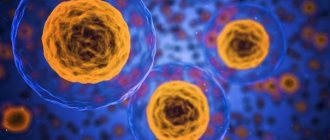What is metabolism
The content of the article
Metabolism refers to chemical processes that occur around the clock and continuously in the organisms of living beings. During sleep, the metabolic rate decreases. If you try to break down the metabolic process into blocks, you will get the following algorithm:
- Eating;
- Absorption of prepared nutrients by the digestive tract;
- Transporting substances to organs in need;
- Absorption of substances by organs;
- The breakdown of substances that did not go through the previous stages and their removal from the body.
Metabolism is unthinkable without “helpers”. Building material is created based on proteins. The balance of energy expenditure is regulated by fats and carbohydrates. Chemical reactions require a favorable environment, which is supported by vitamins and minerals.
The human body is constantly engaged in the synthesis, construction and breakdown of substances. This releases energy. When everything is in order with the metabolism, a balance arises between what was built and what was destroyed. If there is no balance, it is worth thinking about the reasons.
Causes of metabolic disorders
Problems associated with various metabolic disorders in the body are divided into external and internal. External reasons include the intake of toxic substances into the body, imbalance in diet, the appearance of unfavorable gases in the atmosphere, significant changes in the saturation of carbon dioxide in the atmosphere, and the penetration of unfavorable viruses into the body. Internal factors usually include genetic changes in the synthesis of enzymes, immune proteins, and other components.
There is also a slowdown in metabolic rate in older people.
Why does metabolic disorder occur?
- The presence of disease has a strong impact on metabolism. Diseases of the intestines and the entire digestive tract: gastritis, ulcers, pancreatitis, hepatitis, endocrine system disorders: diabetes, thyroid disorders - cause disturbances in metabolic processes.
- A person's lifestyle affects metabolism. The nutritional system, variety of rest, and physical activity affect metabolic processes.
- If you have constant stress in your life, metabolic imbalance begins. Therefore, it is extremely important to learn how to cope with stress. In addition, stress often gets eaten up, which inevitably brings the stage of obesity closer.
- The lack of healthy fats in food causes metabolic disorders at the chemical level. The body has to utilize large portions of Omega-6 oils and experiences a deficiency of Omega-3 oils. It is extremely important to keep the consumption of sunflower, corn and butter oils, lard, and sausages within reasonable limits. But products with Omega-3 need to be introduced into your diet more often: olive and flaxseed oil, marine fish oil. By creating a balance of fats, you will protect your body from atherosclerosis, hypertension and disruptions in blood microcirculation.
- Low physical activity, unreasonable alcohol consumption, and smoking negatively affect metabolism.
- Heredity causes metabolic problems. Sometimes, even if you follow all the above recommendations, metabolic problems cannot be avoided. The reason for this is metabolic disorders inherited.
Metabolic disease
- home
- About the clinic
- Helpful information
- Metabolic disease
>
>
>
METABOLISM (or metabolism) - biochemical transformations of nutrients entering the body until they are excreted. As a result of this process, the structural elements of cells and tissues are built.
The following types of metabolic disorders in the body are distinguished:
- Protein metabolism disorder
Proteins are the main building material for all cells of the body. All pathological processes, to one degree or another, are either a cause or a consequence of protein metabolism disorders.
- Water metabolism disorder
Water is an essential liquid, making up slightly more than half of an adult’s body weight. Normally, the body should enter approximately 2.5 liters per day and excrete the same amount. Violation of water metabolism can occur in the form of dehydration and pathological fluid retention in the body. Both conditions are dangerous and seriously affect human health. With dehydration, blood thickening occurs, and, as a result, all organs and tissues suffer from reduced nutrition and hypoxia (especially the central nervous system and gastrointestinal tract). When water is retained, swelling occurs and blood pressure increases.
- Fat metabolism disorder
Fats play a very important role in the functioning of organs and systems of the body. For example, all hormones have a fat basis. Fats are also present in nervous tissue, ensuring the stability of cellular structures and normal transmission of nerve impulses.
- Violation of mineral metabolism and acid-base balance
Minerals are indispensable for cell function; they are present in enzymes, vitamins, hormones, and pigments. These are biocatalysts of most physiological processes and the basis of the acid-base state of the body. There are many reasons for this disorder: stress, unfavorable environment, addiction to diets, unbalanced nutrition, bad habits. Violation of mineral metabolism leads to an imbalance of all systems, hypovitaminosis and a decrease in the quality of enzymes, weakened immunity, etc.
- Carbohydrate metabolism disorder
Carbohydrates perform a vital energy function. For the body, both a sharp increase in the level of glucose (sugar) in the blood and its fall are equally unacceptable. Moreover, critical blood sugar levels can be fatal. It should be noted that the identification of several separate types of metabolic disorders is very conditional, because All types of exchange are interconnected and significantly influence each other.
The causes of metabolic disorders are varied. The most common of them are hereditary factors that lead to a malfunction of organs and systems that directly regulate metabolic processes.
Due to the high relevance of the issue, we will dwell in more detail on fat metabolism disorders. The most important result of metabolism is ENERGY, extracted from the substances contained in the cells.
Adipose tissue is the body's most important energy depot, and the ability to store energy in the form of fat is one of the main vital functions of adipose tissue.
When the intake of nutrients exceeds the body's needs, excess development of adipose tissue occurs, which leads to obesity.
Treatment of obesity in Pushkin.
Symptoms of metabolic problems
The initial stages of metabolic disorders cannot be diagnosed. Common symptoms that are considered minor: drowsiness, headaches, fatigue. All this is not given any importance. Then more serious symptoms are added:
- feeling “broken”, similar to the onset of a cold;
- chronic desire to sleep;
- insomnia;
- brittle nails, dull hair, dry skin, bags under the eyes;
- aching headaches;
- continuous weight gain.
Diagnosis of metabolic disorders
Metabolic disorders can occur at four levels of organization of the human body - organ, tissue, cellular and molecular. Moreover, in descending order of size, the complexity of diagnosing and treating pathology increases. The biggest problem is the correction of disorders caused by genotype. People suffering from phenylketonuria, Niemann-Pick disease and a number of other hereditary pathologies are forced to adhere to strict instructions from specialists throughout their lives.
Today, metabolic disorders are diagnosed abroad using a number of techniques:
- prenatal diagnosis of hereditary metabolic pathologies. At 12 weeks, every pregnant woman is sent for screening to detect fetal genomic abnormalities. If specialists have doubts, an additional procedure is performed - amniocentesis to obtain amniotic fluid. Also recently, a new non-invasive test to analyze the mother's blood has been used.
- Specific laboratory tests. Many types of metabolic disorders are characterized by the appearance in the blood of compounds that should not normally be present (acetone, ketone bodies) or a significant increase in the specific gravity of normal substances - sugar, cholesterol and others.
- Culture tests. When metabolism is disrupted at the cellular level, the accumulation of pathological products occurs in the cells themselves, and they can be identified by carrying out enzyme reactions on selected skin and blood cells.
- In some cases, a puncture with genetic analysis is required to confirm the diagnosis.
- Acquired metabolic disorders are often associated with hormonal imbalances. A typical example is a decrease in insulin levels in diabetes mellitus, a decrease in the production of glucocorticoids in adrenal hypoplasia, changes in the amount of thyroid hormones in obesity, hirsutism and a number of other diseases. The key to diagnosis is a blood test for hormones.
- Blood biochemistry is used for disorders of the metabolism of vitamins and minerals.
Metabolic restoration
Restoring metabolic processes is a long and difficult task. If the disorder is based on hereditary factors, you cannot do without the help of an endocrinologist. And you shouldn’t put off going to the doctor; the longer you wait to make this decision, the more the imbalance progresses. If lifestyle is to blame for the disturbances, you can independently stop the progression of the disease at an unadvanced stage. For self-improvement, follow the following recommendations:
- Control your fat and carbohydrate intake.
- Regulate your diet;
- Engage in systematic, non-exhausting physical activity;
- Eat fractionally: often in small portions;
- Try to get enough sleep.
How to prevent metabolic problems?
Reducing the risks of metabolic disorders is easy and simple:
- don't skip breakfast;
- drink green tea;
- do morning exercises;
- eat in a calm environment, without TV, phones and showdowns;
- walk more often;
- Provide your body with vitamins and minerals.
Take control of your metabolism and move towards health!
ONLINE REGISTRATION at the DIANA clinic
You can sign up by calling the toll-free phone number 8-800-707-15-60 or filling out the contact form. In this case, we will contact you ourselves.
If you find an error, please select a piece of text and press Ctrl+Enter
Treatment of metabolic disorders
Treatment of metabolic disorders is quite lengthy and labor-intensive. If the cause is a genetic disorder, then constant therapy under the supervision of a doctor will be required. Acquired diseases can be cured completely if they are detected in the early stages.
Much attention is paid to diet during treatment. Depending on the type of disorder, the patient is prescribed a special diet, and a complex of vitamins and minerals is also indicated.
If necessary, the patient will be consulted by a nutritionist and psychotherapist.
It is very important to follow not only a diet, but also a sleep regimen, since healthy sleep has a beneficial effect on the psyche and normalizes processes in the body.
In certain cases, a properly selected physical activity program is indicated.
Metabolic disorders usually indicate more serious problems in the body. Therefore, if you notice symptoms, you should immediately consult a doctor. You can make an appointment for a consultation at SM-Clinic by calling the phone number listed on the website.











